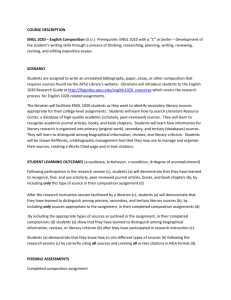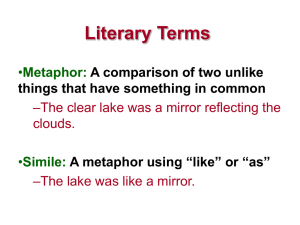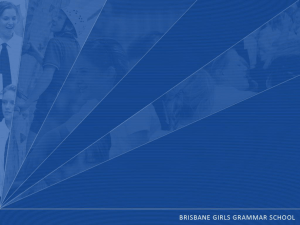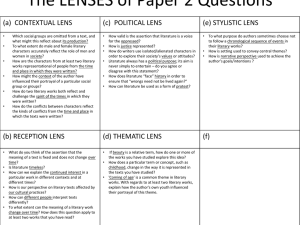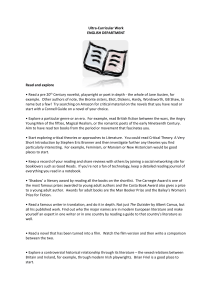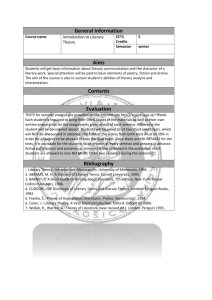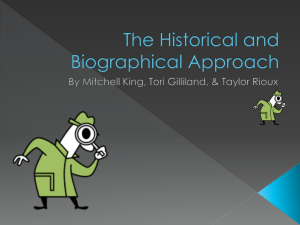Historical-Biographical Theory
advertisement
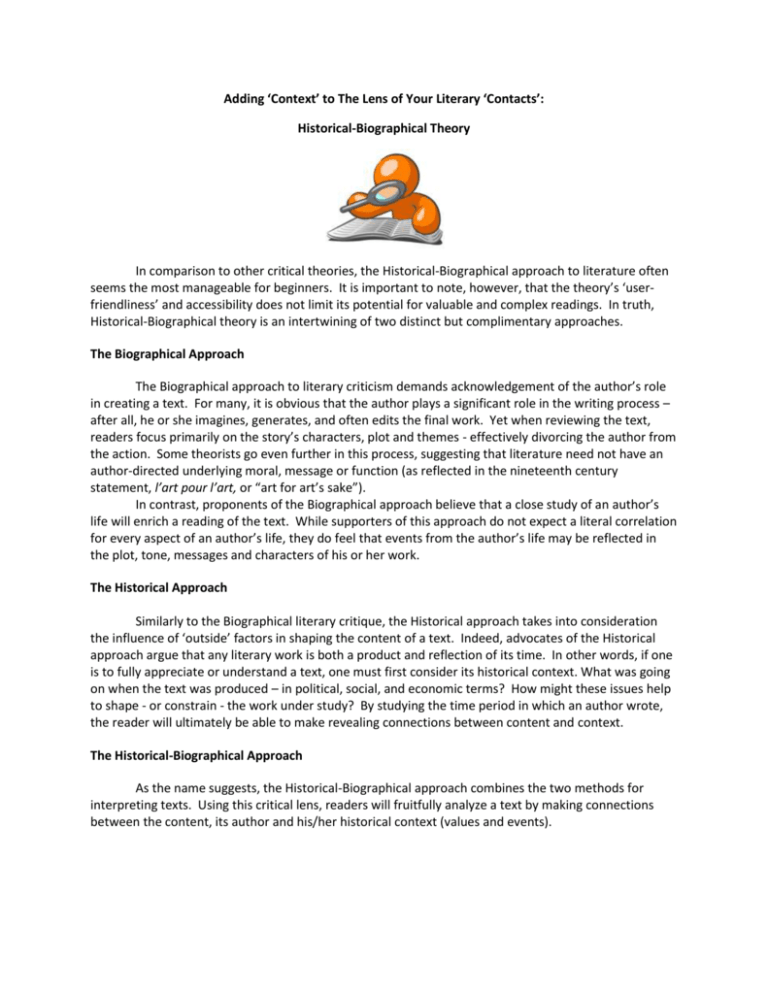
Adding ‘Context’ to The Lens of Your Literary ‘Contacts’: Historical-Biographical Theory In comparison to other critical theories, the Historical-Biographical approach to literature often seems the most manageable for beginners. It is important to note, however, that the theory’s ‘userfriendliness’ and accessibility does not limit its potential for valuable and complex readings. In truth, Historical-Biographical theory is an intertwining of two distinct but complimentary approaches. The Biographical Approach The Biographical approach to literary criticism demands acknowledgement of the author’s role in creating a text. For many, it is obvious that the author plays a significant role in the writing process – after all, he or she imagines, generates, and often edits the final work. Yet when reviewing the text, readers focus primarily on the story’s characters, plot and themes - effectively divorcing the author from the action. Some theorists go even further in this process, suggesting that literature need not have an author-directed underlying moral, message or function (as reflected in the nineteenth century statement, l’art pour l’art, or “art for art’s sake”). In contrast, proponents of the Biographical approach believe that a close study of an author’s life will enrich a reading of the text. While supporters of this approach do not expect a literal correlation for every aspect of an author’s life, they do feel that events from the author’s life may be reflected in the plot, tone, messages and characters of his or her work. The Historical Approach Similarly to the Biographical literary critique, the Historical approach takes into consideration the influence of ‘outside’ factors in shaping the content of a text. Indeed, advocates of the Historical approach argue that any literary work is both a product and reflection of its time. In other words, if one is to fully appreciate or understand a text, one must first consider its historical context. What was going on when the text was produced – in political, social, and economic terms? How might these issues help to shape - or constrain - the work under study? By studying the time period in which an author wrote, the reader will ultimately be able to make revealing connections between content and context. The Historical-Biographical Approach As the name suggests, the Historical-Biographical approach combines the two methods for interpreting texts. Using this critical lens, readers will fruitfully analyze a text by making connections between the content, its author and his/her historical context (values and events). Checklist of Biographical Critical Questions What influences—people, ideas, movements, events—evident in the writer’s life does the work reflect? To what extent are the events described in the work a direct transfer of what happened in the writer’s actual life? What modifications of the actual events has the writer made in the literary work? For what possible purposes? What are the effects of the differences between actual events and their literary transformation in the poem, story, play, or essay? What has the author revealed in the work about his/her characteristic modes of thought, perception, or emotion? What place does this work have in the artist’s literary development and career? A Checklist of Historical Critical Questions When was the work written? When was it published? How was it received by the critics and public and why? What does the work’s reception reveal about the standards of taste and value during the time it was published and reviewed? What social attitudes and cultural practices related to the action of the work were prevalent during the time the work was written and published? What kinds of power relationships does the word describe, reflect, or embody? How do the power relationships reflected in the literary work manifest themselves in the cultural practices and social institutions prevalent during the time the work was written and published? To what extent can we understand the past as it is reflected in the literary work? To what extent does the work reflect differences from the ideas and values of its time?




